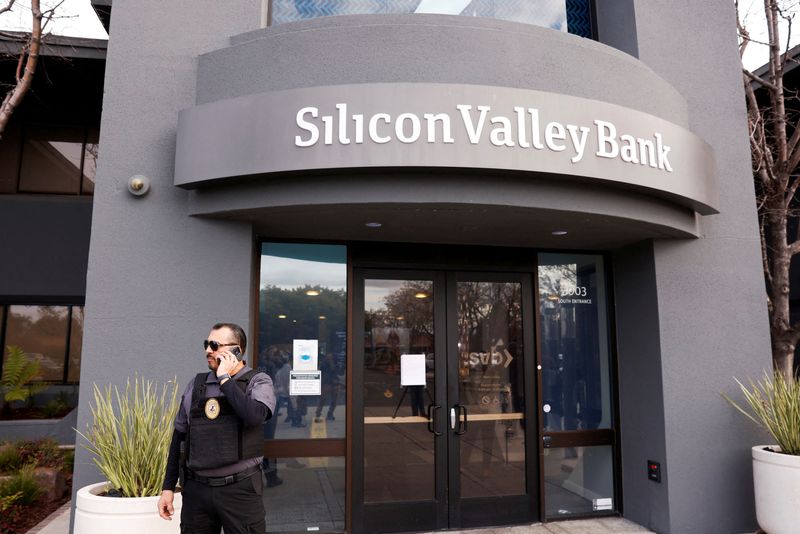By Manya Saini
(Reuters) -The Federal Deposit Insurance Corporation on Monday decided to break up Silicon Valley Bank (SVB) and hold two separate auctions for its traditional deposits unit and its private bank after failing to find a buyer for the failed lender last week.
It will seek bids for Silicon Valley Private Bank until March 22 and for the bridge bank until March 24. The private bank, which is housed within SVB's retail operations, caters to high net-worth individuals.
Bank and non-bank financial firms will be allowed to bid on the asset portfolios, the regulator said.
First Citizens BancShares Inc , one of the biggest buyers of failed U.S. lenders, has submitted a bid for all of Silicon Valley Bank, one source with knowledge of the matter said. If the FDIC decides to receive bids for parts of SVB, First Citizens also expects to bid. Bloomberg reported earlier on their interest on SVB.
First Citizens said in a statement it "does not comment on market rumors or speculation."
Last week, sources told Reuters that the FDIC was planning to relaunch the sale process for SVB, with the regulator seeking a potential break-up of the failed lender.
The parent company of the lender SVB Financial Group had on Friday filed for a reorganization under Chapter 11 bankruptcy protection and sought buyers for its assets after steps to shore up investor confidence failed.
The FDIC, which insures deposits and manages receiverships, had informed banks mulling offers in the auctions for SVB and Signature Bank (NASDAQ:SBNY) that it was considering retaining some of the assets that are underwater.

Reuters reported on Sunday that the efforts of some U.S. regional banks to raise capital and allay fears about their health are running up against concerns from potential buyers and investors about looming losses in their assets.
The run on the bank was sparked by balance-sheet concerns after the lender sold a portfolio of treasuries and mortgage-backed securities to Goldman Sachs (NYSE:GS) at a $1.8 billion loss and then attempted to plug that hole through a $2.25 billion fundraising.